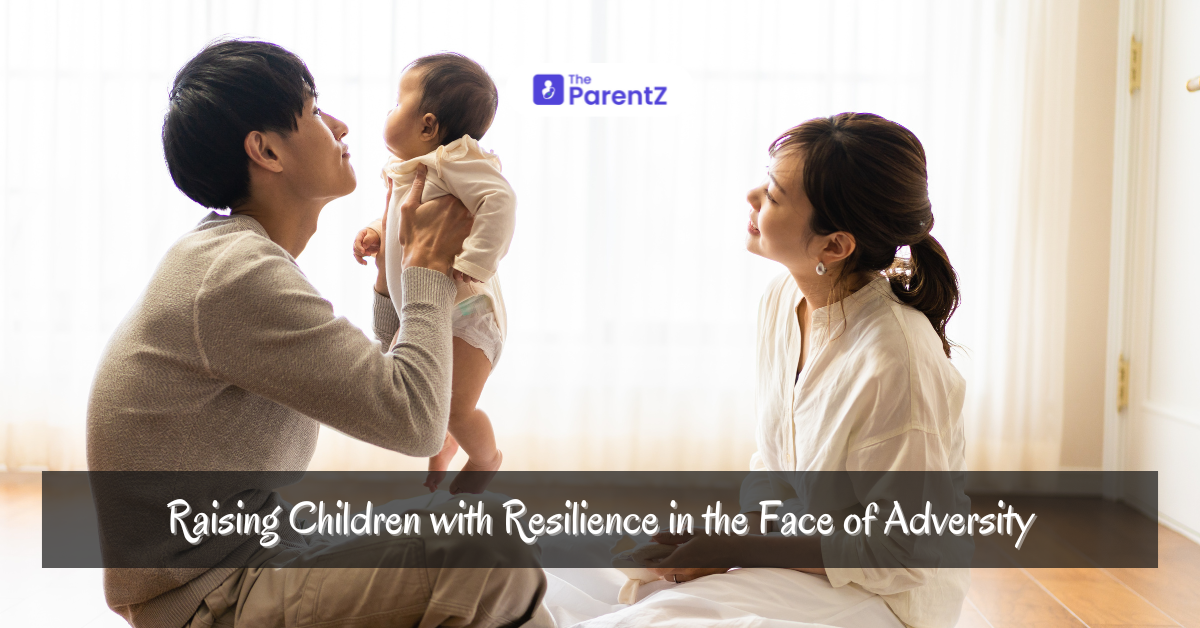In an unpredictable world, resilience is an essential quality that helps children navigate challenges and bounce back from adversity. Building resilience in children is not just about preparing them for difficult times but also about fostering a mindset that allows them to thrive despite the obstacles they may face. This article explores strategies for raising resilient children who can face adversity with courage and determination.
Understanding Resilience
Resilience is the ability to adapt well in the face of adversity, trauma, or significant stress. It involves a combination of mental, emotional, and behavioral responses that enable individuals to cope with challenges and emerge stronger. According to research by Dr. Ann Masten, resilience is often referred to as "ordinary magic" because it results from the normal, everyday resources available to children, such as supportive relationships, self-regulation skills, and a sense of purpose.
Parents play a crucial role in developing resilience by providing a supportive environment, modeling resilient behaviors, and encouraging the development of problem-solving skills. Understanding what resilience entails is the first step in helping children cultivate this vital trait.
The Role of Secure Attachment
A secure attachment between parent and child lays the foundation for resilience. According to attachment theory, a strong emotional bond with a caregiver provides children with a sense of security, which is essential for exploring the world and taking risks. Children who feel securely attached are more likely to develop the confidence needed to face challenges.
Parents can foster secure attachment by being responsive to their child's needs, offering comfort and support, and maintaining consistent, loving relationships. This sense of security helps children develop a stable base from which they can navigate adversity, knowing they have a reliable source of support to turn to.
Encouraging a Growth Mindset
A growth mindset, as popularized by Dr. Carol Dweck, is the belief that abilities and intelligence can be developed through effort and learning. Children with a growth mindset are more likely to persevere in the face of challenges because they view setbacks as opportunities for growth rather than as insurmountable failures.
Parents can encourage a growth mindset by praising effort rather than innate ability, focusing on the process rather than the outcome, and teaching children that mistakes are a natural part of learning. For example, instead of saying, "You're so smart," parents might say, "I'm proud of how hard you worked on that project." This shift in language reinforces the idea that effort leads to improvement and success.
Teaching Problem-Solving Skills
Resilience is closely linked to the ability to solve problems effectively. Teaching children problem-solving skills equips them to handle adversity by breaking down challenges into manageable steps and finding solutions.
Parents can involve children in problem-solving discussions, encouraging them to brainstorm potential solutions and evaluate the pros and cons of each option. For younger children, this might involve simple decisions, such as choosing how to resolve a conflict with a friend. For older children, it could involve more complex issues, such as planning for a school project or managing time effectively.
Dr. Kenneth Ginsburg, a pediatrician specializing in adolescent medicine, emphasizes the importance of allowing children to experience manageable levels of adversity. This "protective challenge" helps them develop problem-solving skills and confidence in their ability to overcome obstacles.
Building Emotional Regulation
Emotional regulation is the ability to manage and respond to emotional experiences in a healthy way. Children who can regulate their emotions are better equipped to handle stress and adversity. Parents can support the development of emotional regulation by teaching children to identify and express their emotions, offering strategies for calming down, and modeling healthy emotional responses.
For example, teaching a child deep breathing exercises or encouraging them to talk about their feelings can help them manage anxiety or frustration. Parents can also model emotional regulation by demonstrating how they handle their own stress in healthy ways, such as through exercise, meditation, or talking things out.
Fostering a Sense of Purpose and Meaning
A strong sense of purpose and meaning in life contributes to resilience by giving children a reason to persevere through challenges. This sense of purpose can come from a variety of sources, such as personal values, religious or spiritual beliefs, or a commitment to helping others.
Parents can help children develop a sense of purpose by encouraging them to pursue activities that align with their interests and values. Volunteering, participating in community service, or engaging in creative projects can give children a sense of accomplishment and connection to something larger than themselves.
Research by Dr. Viktor Frankl, a psychiatrist and Holocaust survivor, highlights the importance of finding meaning in life, even in the face of suffering. His work suggests that a sense of purpose can help individuals endure and overcome adversity by providing a deeper motivation to keep going.
Promoting Social Connections
Strong social connections are a key factor in resilience. Relationships with family, friends, and community members provide emotional support, practical assistance, and a sense of belonging. Encouraging children to build and maintain positive relationships helps them develop a network of support that they can rely on during difficult times.
Parents can promote social connections by fostering a warm, supportive family environment, encouraging participation in group activities or sports, and teaching social skills such as empathy, communication, and cooperation. These connections provide children with a safety net, helping them feel less isolated and more capable of handling challenges.
Conclusion
Raising resilient children is about more than just preparing them for difficult times; it’s about equipping them with the mindset, skills, and support systems they need to thrive in any situation. By fostering secure attachments, encouraging a growth mindset, teaching problem-solving and emotional regulation, and promoting a sense of purpose and social connections, parents can help their children develop the resilience to face adversity with strength and grace. Resilience is not an innate trait but a skill that can be nurtured and developed, ensuring that children are ready to navigate the complexities of life with confidence and resilience.








Be the first one to comment on this story.